News
Indian Railways Rule: No Ticket Checks Between 10 PM and 6 AM for Regular Night Journeys

As part of efforts to ensure passenger comfort and reduce disturbances during overnight journeys, Indian Railways has instituted a specific rule: Traveling Ticket Examiners (TTEs) are generally not permitted to check tickets between 10:00 PM and 6:00 AM, except under certain circumstances
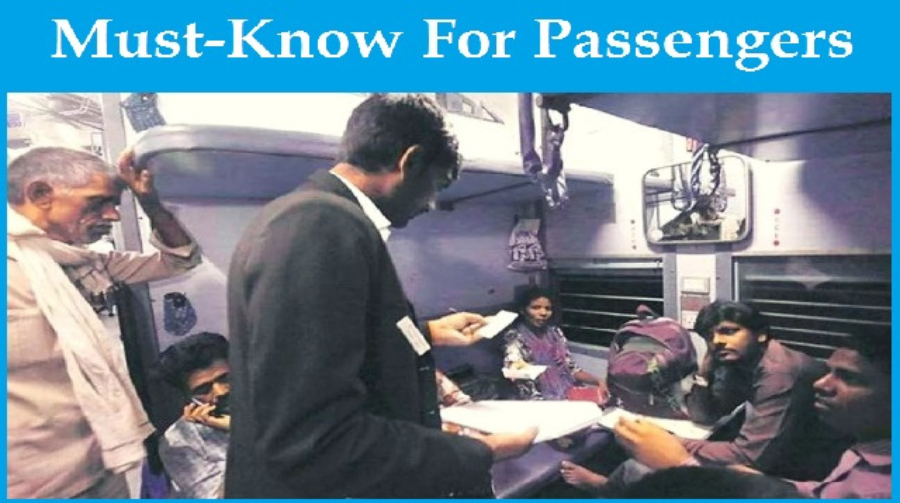
When Are Sleep Hours Protected?
Under the Railway Board’s official circular (January 27, 2017; Commercial Circular no. 11 of 2023), the following guidelines apply:
- Ticket checks should normally occur between 6:00 AM and 10:00 PM.
- Once tickets are verified and no unauthorized passengers are found, TTEs should not disturb reserved passengers from 10 PM to 6 AM.
- Exceptions are allowed where:
- The train originates after 10 PM,
- A passenger boards during these hours, or
- TTEs haven’t checked tickets post-boarding.
- If suspicion of unauthorized travel arises, checks may be performed with minimal intrusion.

Rule in Action: What It Means for Passengers
- Peaceful sleep guaranteed: Passengers who boarded before 10 PM and whose tickets were checked can rest assured they won’t be disturbed during the night.
- Night boarding passengers: If your journey begins at or after 10 PM and ticketing has not yet been verified, TTEs may check at night—you may be woken up
- Safety checks: Vigilance or special squads may still perform checks late at night if suspicious activity is reported. Such inspections should minimize inconvenience.
What Passengers Are Saying
Reddit discussions reveal supportive yet critical perspectives: TTE cannot wake you up to check tickets. But if you board after 10 PM, your ticket may be checked even at night This rule exists only for journeys started before 10 PM. If you board between 10 PM and 6 AM, tickets can still be checked
These insights suggest confusion in real-world enforcement, leading many to question the practical application of the rule.
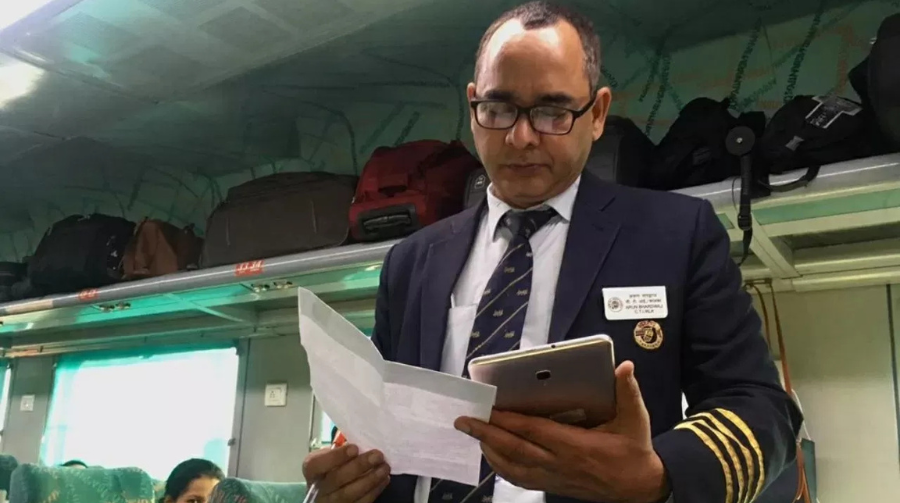
Enforcement Gaps & Ride Realities
- Not always enforced: While the rule exists on paper, enforcement has been inconsistent. Many passengers report being checked late at night even if they boarded before 10 PM.
- Exceptions misused: Boarding after 10 PM or incomplete initial checks often become excuses for late-night disturbances.
At-a-Glance Summary
| Scenario | TTE Ticket Check Permitted? |
|---|---|
| Boarded before 10 PM, ticket checked | ❌ Not permitted between 10 PM–6 AM |
| Boarded at or after 10 PM | ✅ Permitted any time |
| Ticket not checked after boarding | ✅ Permitted during night hours |
| Suspicion of unauthorized passengers | ✅ Permitted but should be minimal |
Why This Rule Matters
- Passenger dignity: Protects overnight sleepers from being woken unnecessarily
- Operational clarity: Helps riders know their rights during night travel
- Security balance: Allows action when fake tickets or freeloaders are suspected
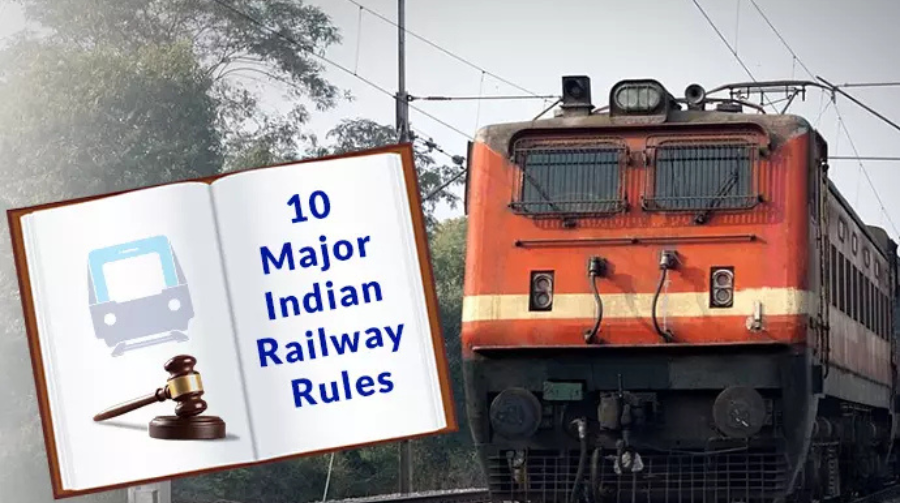
Final Note
Indian Railways’ rule aims to balance peaceful rest for passengers with adequate verification protocols. If you’d like, I can create an FAQ section for passengers—explaining how to politely request not to be disturbed, or clarify the boarding-time exceptions—or draft additional posts on night journey dos and don’ts.
News
Temperature Expected to Fall in Delhi Over Next Two Days; Rain Likely Today

Cold conditions have returned to the national capital after rainfall lashed parts of Delhi-NCR on Friday, January 23, bringing a noticeable dip in temperatures and relief from pollution. The mercury slipped below 10°C, marking a sharp turnaround after a brief spell of warmer days earlier this week.
According to the India Meteorological Department (IMD), Delhi is likely to witness a further drop in temperatures over the next two days, with light rain predicted for today as well. The maximum temperature is expected to hover around 20°C, while the minimum may dip to 6°C, intensifying the winter chill.
Rain Brings Clear Skies and Better Air Quality
Friday’s rainfall significantly altered weather conditions across the region. Cool northerly winds swept through the capital, leading to clearer skies and a marked improvement in visibility. Air quality levels also improved, with several monitoring stations recording a drop in pollution indices due to the washout effect of rain.
Meteorologists noted that the rain activity was concentrated mainly in the morning and early afternoon, gradually subsiding by evening.
Delhi Records Wettest January Day in Two Years
Delhi witnessed its first rain of 2026, which also turned out to be the wettest January day in the last two years. IMD data shows that the highest January rainfall on record was logged on January 30, 2023, when the city received 20.4 mm of rain.
On Friday, rainfall between 8:30 am and 5:30 pm was widespread across Delhi-NCR:
- Ridge: 17.4 mm
- Palam: 14.0 mm
- Lodi Road: 13.4 mm
- Safdarjung: 13.2 mm
- Ayanagar: 11.5 mm
Most weather stations reported light to moderate rainfall between 8:30 am and 2:30 pm, after which precipitation weakened significantly.
Weather Update for Other North Indian Cities
- Lucknow (Uttar Pradesh): Light rain is likely in the morning, with a minimum temperature around 10°C.
- Patna (Bihar): Clear skies are expected, with the minimum temperature settling near 13°C.
- Jaipur (Rajasthan): The minimum temperature may drop to around 5°C, with partly cloudy conditions likely.
What to Expect Next
IMD officials have indicated that the temperature dip could lead to cold day conditions in isolated pockets of Delhi-NCR. Early morning shallow fog may also develop over the next few days, especially in low-lying areas. Residents have been advised to take precautions against cold weather, particularly during early morning and late-night hours.
While no severe cold wave warning has been issued yet, authorities are monitoring conditions closely as winter tightens its grip once again on north India.
News
PM Modi hails Mahayuti’s sweeping win in Maharashtra civic polls, calls it people’s mandate for NDA governance

Prime Minister Narendra Modi on Friday welcomed the Mahayuti alliance’s decisive victory in the Maharashtra municipal corporation elections, describing it as a clear indication of the deepening bond between the people of the state and the National Democratic Alliance (NDA). The results, covering elections to 29 municipal corporations, have delivered a strong endorsement of the alliance’s governance model and development agenda.
Taking to social media platform X, PM Modi thanked the people of Maharashtra for backing what he termed the NDA’s “pro-people and good governance” agenda. He said the mandate reflected public trust in the alliance’s track record and its vision for the future.
“Thank you Maharashtra! The dynamic people of the state bless the NDA’s agenda of pro-people good governance. This is a vote to add momentum to progress and celebrate the glorious culture the state is associated with,” the prime minister wrote.
Praise for NDA workers and campaign strategy
In a separate post, PM Modi lauded the efforts of NDA karyakartas, crediting them for working tirelessly at the grassroots level and effectively communicating the alliance’s message to voters. He noted that party workers played a crucial role in highlighting development initiatives while countering what he described as misinformation spread by opposition parties.
“They talked about our alliance’s track record, highlighted our vision for the coming times and also effectively countered the lies of the Opposition. My best wishes to them,” he said.
Mahayuti’s dominant performance across civic bodies
The Mahayuti alliance registered a commanding performance in the civic polls, with the Bharatiya Janata Party (BJP) emerging as the single-largest party. The BJP won over 1,300 of the 2,869 seats contested across municipal corporations, reinforcing its organisational strength in urban Maharashtra.
Chief Minister Eknath Shinde-led Shiv Sena finished second within the alliance, securing 394 seats. The Congress surprised many observers by finishing third overall with victories in 315 seats, indicating pockets of resilience despite recent electoral setbacks.
Uddhav Thackeray-led Shiv Sena (UBT) won 149 seats, while the Nationalist Congress Party (NCP), which contested independently on several seats, secured 158 victories. Asaduddin Owaisi’s AIMIM also made notable gains with over 90 seats, while Sharad Pawar’s NCP (SP) won 36 seats. Raj Thackeray’s Maharashtra Navnirman Sena (MNS) managed to secure around 12 seats.
Political significance ahead of key elections
Although the final tally is yet to be officially declared by the Maharashtra State Election Commission, political analysts see the results as a significant morale booster for the Mahayuti government led by Devendra Fadnavis, with Eknath Shinde and Ajit Pawar as deputy chief ministers. The outcome is being viewed as an important indicator of voter sentiment ahead of future state and national-level contests.
The civic poll victory is also expected to strengthen the NDA’s narrative of political stability, development-focused governance, and organisational unity in Maharashtra’s complex political landscape.
News
Air India, IndiGo, SpiceJet issue travel advisories after Iran shuts airspace amid unrest

Several Indian airlines, including Air India, IndiGo, and SpiceJet, on Thursday issued travel advisories after Iran abruptly closed its airspace, disrupting multiple international flight routes. The sudden shutdown has led to delays, rerouting, and cancellations, particularly for long-haul flights that typically pass over Iranian territory.
The development comes amid intensifying protests in Iran against Supreme Leader Ayatollah Ali Khamenei and escalating tensions between Iran and the United States, raising serious aviation safety concerns in the region.
Air India warns of delays and cancellations
Air India was among the first carriers to alert passengers. In a post on X, the airline said flights that usually overfly Iran are now being rerouted to ensure passenger safety, which may result in longer flight times.
“Due to the emerging situation in Iran and the subsequent closure of its airspace, Air India flights are operating via alternative routes, which may lead to delays. Some flights where rerouting is not feasible are being cancelled,” the airline said.
Air India urged passengers to check flight status before heading to the airport, reiterating that the safety of passengers and crew remains its top priority.
IndiGo issues travel alert, offers rebooking and refunds
IndiGo also confirmed that several of its international services were impacted due to Iran’s “sudden airspace closure.”
“Our teams are working diligently to assess the situation and support affected customers by offering the best possible alternatives,” the airline said.
IndiGo added that impacted passengers would be provided options such as rebooking on alternate flights or refunds, depending on individual cases.
SpiceJet advises passengers to stay updated
SpiceJet released a similar advisory, informing travellers that some of its flights could be affected due to the closure.
“Passengers are advised to check their flight status on our website or contact our 24×7 reservation helpline for assistance,” the airline said in a statement on X.
Why Iran closed its airspace
Iran ordered the closure of its airspace to commercial aircraft early Thursday, according to a notice issued to pilots. While no official reason was provided, the restriction was initially expected to remain in effect until 7:30 am local time.
The move coincides with widespread domestic protests, heightened security measures, and growing fears of a possible US military response. Iran has previously shut its airspace during periods of conflict, including:
- The 12-day confrontation with Israel in June
- Exchanges of fire during the Israel–Hamas conflict
Airlines globally avoiding Iranian airspace
Aviation risk-monitoring platform SafeAirspace reported that most international airlines are now avoiding Iranian airspace altogether. Several carriers have already reduced or suspended services in the region.
Experts warn that airspace closures often signal potential military or security activity, including air defence operations or missile launches, which raise the risk of civilian aircraft being misidentified.
What passengers should do
- Check flight status directly with airlines before travel
- Expect longer travel times due to rerouting
- Be prepared for last-minute schedule changes or cancellations
- Opt for flexible rebooking or refunds if offered
As the situation in Iran remains volatile, airlines are expected to continue monitoring developments closely and adjust operations in line with safety advisories from international aviation authorities.
-

 Celebrity Lifestyle8 months ago
Celebrity Lifestyle8 months agoEx-Cricketer Shikhar Dhawan Buys Ultra-Luxury Apartment Worth ₹69 Crore in Gurugram
-
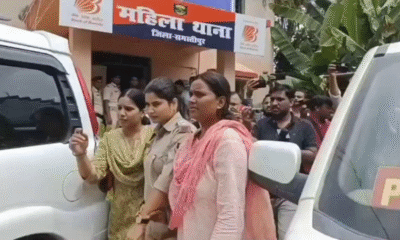
 Crime & Investigation6 months ago
Crime & Investigation6 months agoDelhi Police SI Neetu Bisht Caught Taking ₹20 Lakh Bribe – Shocking Details Emerge in Corruption Probe
-

 Glamour & Entertainment7 months ago
Glamour & Entertainment7 months agoTelegram Channels Disseminating Pro‑Russian Propaganda in Poland
-

 Entertainment7 months ago
Entertainment7 months agoAbhijeet & Dr Tarika Reunite in CID 2 — Fans Say ‘Clear the Misunderstanding Now
-

 Business7 months ago
Business7 months agoAmazon sets 30‑day relocation deadline for corporate staff—opt out by resigning in 60 days
-

 Bollywood6 months ago
Bollywood6 months agoNo ₹3 Lakh Fine or 2-Year Jail: The Truth Behind the ‘Hakla’ GIF Buzz
-
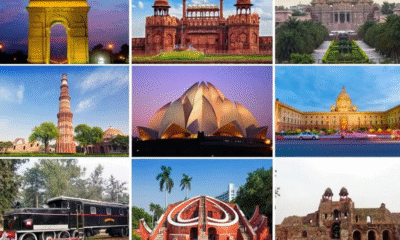
 Travel & Adventure7 months ago
Travel & Adventure7 months agoBest Places to Hangout in Delhi (2025): Top 10 Picks for Fun & Chill
-

 News7 months ago
News7 months agoWar Intensifies: Iran’s Nuclear Sites, Hospitals Hit in Escalating Israel Clash – 10 Big Developments




